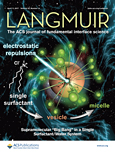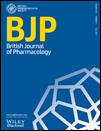 A journal has flagged a paper by a researcher who has questioned the safety of genetically modified organisms, after receiving concerns that there were issues with some images.
A journal has flagged a paper by a researcher who has questioned the safety of genetically modified organisms, after receiving concerns that there were issues with some images.
In the 2006 paper, researchers led by Federico Infascelli, an animal nutrition researcher at the University of Naples, tested the blood of rabbits fed genetically modified soybeans. Starting in November 2015, however, the journal animal fielded concerns that gels appeared manipulated, and a figure legend differed from that in a thesis associated with the research.
This isn’t the first notice issued for Infascelli’s controversial work, which has been under scrutiny in recent years, including by Italian senator and biologist Elena Cattaneo. Last year, he was formally reprimanded by the University of Naples for including manipulated data in three papers.
Although the University of Naples concluded the image manipulations were “not a breach of scientific integrity,” the journal has issued a lengthy expression of concern about the paper:
Continue reading Journal flags paper about GMO foods over concerns about figures



 PLOS ONE has retracted the last of five papers by a former employee of Pfizer, who the company
PLOS ONE has retracted the last of five papers by a former employee of Pfizer, who the company  Despite a university’s attempts to avoid discussing a misconduct investigation involving one of its former (and prominent) researchers, we keep reading more about it.
Despite a university’s attempts to avoid discussing a misconduct investigation involving one of its former (and prominent) researchers, we keep reading more about it.
 A pharmacology journal has
A pharmacology journal has 
